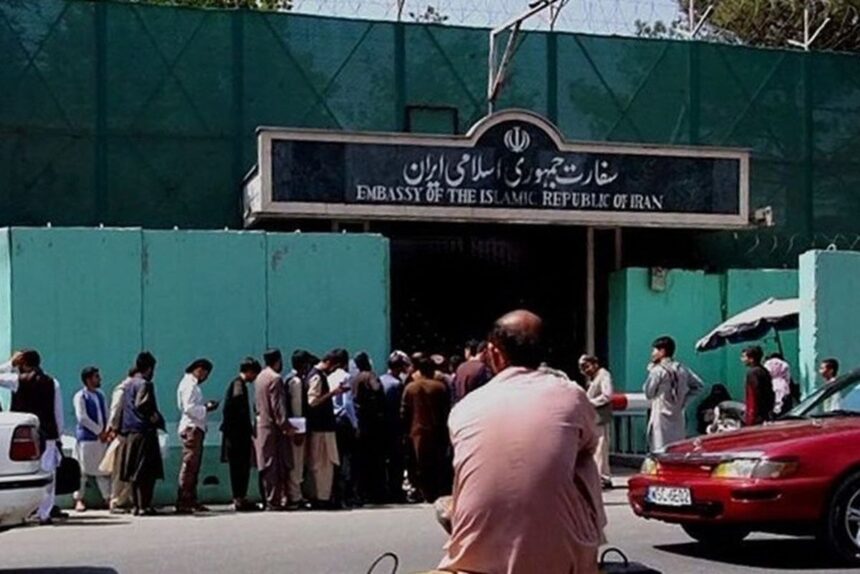RASC News Agency: As the mass deportation of Afghanistani migrants from Iran intensifies, a wave of outrage is sweeping across social media, where users have launched a campaign under the banner #StopRacism, calling for the expulsion of Iran’s ambassador from Kabul and the immediate closure of the Islamic Republic’s embassy in Afghanistan. The campaign sparked by disturbing reports of systematic abuse, extortion, and racial humiliation has condemned the conduct of Iranian security forces as “inhuman,” “racist,” and a blatant violation of international law.” According to testimonies shared online, even migrants holding valid visas and identification documents have been beaten, verbally assaulted, and had their official papers destroyed by Iranian authorities, with little to no recourse.
Social media users have also accused the Iranian government of exploiting Afghanistan’s consular needs for profit, noting that Tehran continues to collect millions in visa fees and consular charges from desperate Afghanistani citizens, while denying their legal status and dignity on Iranian soil. Yet the Taliban’s diplomatic silence in the face of these atrocities has added fuel to the fire. Public frustration is mounting over the regime’s unwillingness or inability to confront Iran or defend the rights of the very people it claims to govern. Critics argue that the Taliban’s Ministry of Foreign Affairs has become little more than a rubber stamp, offering symbolic statements with no real diplomatic follow-through or pressure.
Multiple independent reports confirm that tens of thousands of Afghanistani migrants have been expelled from Iran in recent weeks, often without access to legal representation, humanitarian assistance, or even the opportunity to reclaim unpaid wages and rental deposits. Many deportees have alleged being subjected to bribery and physical abuse during their forced removal, particularly at border checkpoints operated by Iranian forces. Though the Taliban belatedly acknowledged that migrants had been mistreated during their return journeys, their vague promise to pursue the matter through “diplomatic channels” was widely dismissed as performative. The regime’s habitual submission to foreign pressure whether from Iran, Pakistan, or other states has left Afghanistani citizens feeling abandoned and voiceless.
Meanwhile, humanitarian agencies warn of a rapidly deteriorating situation at Afghanistan’s western border. With temperatures soaring past 45°C, and little infrastructure in place to receive and house the returnees, the risk of famine, disease, and mass displacement looms large. The United Nations and several human rights watchdogs have described the deportations as collective, illegal, and degrading, particularly in the case of women-led families and unaccompanied minors. As the Islamic Republic of Iran tightens its deportation policies and the Taliban continues to posture without action, Afghanistani migrants remain caught between two repressive systems abused by one regime and ignored by the other.
International pressure is now mounting on both governments. Legal experts and human rights advocates are urging the international community to hold Iran accountable for its violations of refugee protections under the Geneva Convention and to cease legitimizing Taliban authorities who have failed, time and again, to safeguard the lives and rights of their own citizens.






